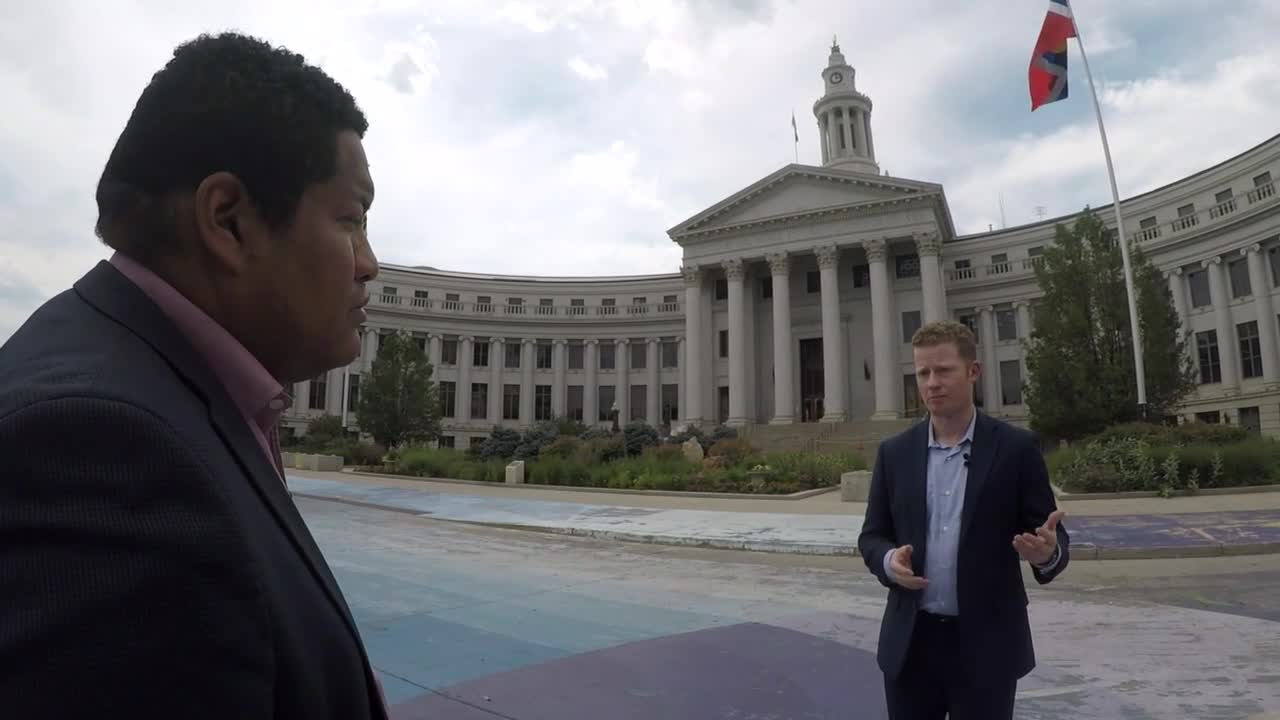DENVER — The Salvation Army's operations at three hotel shelters will end when its contracts with the City and County of Denver expire in December 2025, but the city said the shelters will continue to operate under new providers afterward.
Those three shelters are The Aspen, Stone Creek, and Tamarac shelters, the organization announced on Thursday. The Aspen and Stone Creek is for single adults and the Tamarac is geared toward families with minor children. All three are part of the Denver mayor's All In Mile High Communities, an initiative that aims to end street homelessness in Denver.

In a press release, the Salvation Army Intermountain Division said it joined the City of Denver in its efforts to reduce homelessness in 2023 by operating the hotel buildings as shelters, but in 2024, the organization faced more than $5.2 million in shelter operating costs. It said this outpaced the funding that was available.
“This is a decision we’ve made as an organization to ensure our financial sustainability,” said Major Nesan Kistan, intermountain divisional commander for The Salvation Army. “... Continuing to absorb these costs would jeopardize the quality and integrity of all our programs. "Instead of spreading our resources too thin and risking the standard of care we’ve upheld for more than 160 years, we’ve made the necessary decision to step back in some areas to strengthen and sustain our impact where it’s needed most.”
Jon Ewing, spokesperson with the Denver Mayor's Office, met with Denver7 on Thursday and explained that the city used a Request for Proposal system to identify the best providers for the three shelters and The Salvation Army was not chosen.
"Of the three, there was one they didn't apply for. There were two others they did and they were not selected to move forward," Ewing said. "We did have early conversations about them coming back to run the Tamarac, and I think ultimately, both sides just decided that it would be best to part ways in this."

Denver
Salvation Army's future with City of Denver's hotel shelters unclear
He said The Salvation Army has played an important role over the past few years and are responsible for bringing thousands of unhoused people inside.
"They wouldn't be running Crossroads (a shelter they will continue to operate) next year if we didn't believe fully that they can run Crossroads next year," he said. "We believe that because we've seen the work."
The organization is now working with the city — as well as any new agencies that may assume responsibility for those shelter services — to ensure the transition is smooth for those who reside there and the staff. Ewing said he expects an announcement about this in early October.
"Nothing is going to change for the people who are staying there," Ewing said. "It will just be new operators that come in that do the work. So, we are not closing those shelters, we are not closing those sites. They are going to remain open. The only thing that will change on New Year's Day is who's running the site."
- Denver7 spoke with a resident of one of the impacted shelters about her experience. Read more in the story below:

Denver
Woman says she'd 'rather be outside' than stay in Salvation Army-run shelter
Denver7 previously reported about the possibility of shelters closing and city officials told us that in regard to the two shelters on Quebec Street — Stone Creek and The Aspen — they do not plan to close the doors if contracts with The Salvation Army do indeed expire.
“We are not closing the door on need,” Kistan said. “We are pivoting with purpose to focus our energy and resources where we can continue making a lasting difference. This is not the end of our service to this community. It’s a necessary step toward a continued sustainable and impactful future."
The organization will continue to operate the following shelters:
- Lambuth Family Center (short-term family shelter)
- Connection Center (provides access to Salvation Army and community resources and services)
- Harbor Light Center (shelter for men recovering from addiction or looking to prevent a relapse)
- Crossroads Center (24/7 emergency shelter serving at least 250 men daily in partnership with the city)
In July, the City of Denver published its 2025 All In Mile High report, which reads that in the past two years, more than 7,000 people have transitioned into interim housing and more than 5,500 people "have exited homelessness entirely."








